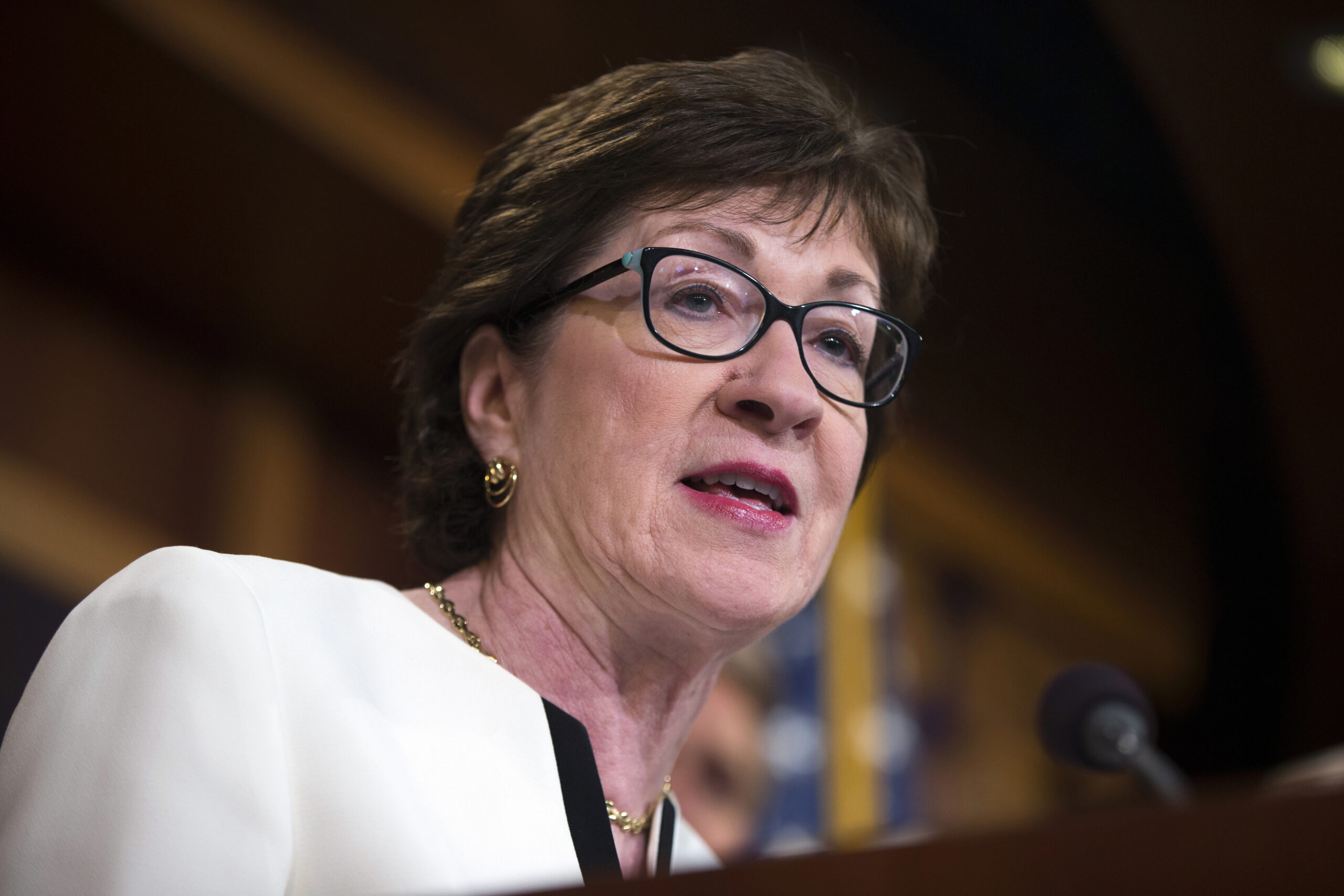Susan Collins, the Maine senator who has become an intraparty thorn in President Donald Trump’s side, became the first GOP elected official to openly question whether he should be chosen to represent the party in the 2020 election.
Asked during an MSNBC interview on Monday about whether Trump would be re-nominated in 2020, Collins said “it’s far too early to tell” if the president would win. Traditionally, presidents have faced no opposition from their own party in their efforts to run for re-election.
Collins also said that she did not vote for Trump in last year’s general election.
“I didn’t support the president when he was our party’s nominee. That was a very difficult position for me to take. I’d never taken it before. Instead, I wrote in the name of [House Speaker] Paul Ryan, and that was very hard for me to do as a lifelong Republican,” Collins said.
The centrist Republican senator was also asked about Trump’s response to recent violence at the fascist-organized rally in Charlottesville, Virginia on Aug. 12.
“The president had a moral obligation to speak with absolute clarity from the very beginning, and stick with that, not shift back and forth, to denounce the neo-Nazis the white supremacists the anti-Antisemitism that we heard,” Collins told host Hallie Jackson.
She continued: “Unfortunately he wavered back and forth. There are no good neo-Nazis. In this case, I think the president failed to meet the standard that we would have expected a president to do at a time like that. There should be no place for hatred, bigotry, and racism in this country and he should have said that very clearly. He did at times, but then he wavered back and forth in his message.”
Collins has been the leader among the small number of Republicans in Congress who have opposed the party’s efforts to cut federal spending instead of merely fixing issues that some health care customers, particularly ones in smaller metropolitan areas, have had with the Affordable Care Act. When Barack Obama was president, she was the sole member of the GOP to vote against a series of show votes that party leaders held to repeal Obama’s signature achievement, knowing that he would not sign them.
Since Trump’s repeated efforts to defend members of the Charlottesville rally as “very fine people,” multiple Republicans have criticized the president’s expressed sentiments. Even more have made their own condemnations of the racist groups involved with organizing the event.
Senate Foreign Relations Committee Chairman Bob Corker has also sharply criticized Trump, telling his Tennessee constituents that the president “has not yet been able to demonstrate the stability, nor some of the competence, that he needs to demonstrate in order for him to be successful.”
On Sunday, John Kasich, the Republican Ohio governor who refused to endorse Trump after being defeated by him as they both sought the GOP’s 2016 nomination, did not definitively rule out a primary challenge to the president.
“I don’t have any plans to do anything like that. I’m rooting for him to get it together,” Kasich told CNN host Jake Tapper. “We all are. I mean, we’re only, like, seven months into this presidency.”

